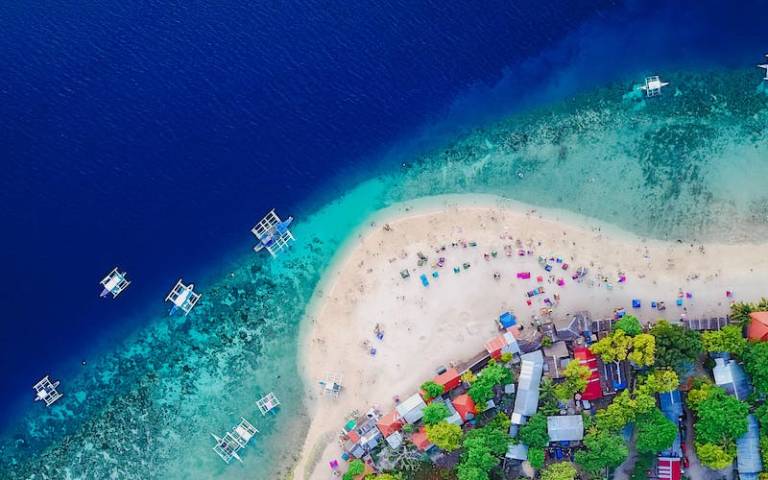UCL Energy Institute Director unveils blue-green solutions for climate resilience at COP28
6 December 2023
Professor Catalina Spataru spotlights visionary blue-green solutions designed to revolutionise climate resilience and meet net-zero targets

In a special showcase at the COP28 climate action innovation zone in Dubai, Prof Spataru delved into groundbreaking research on floating power systems, tapping into the boundless potential of renewable energy, marine mobility, the synergy of interconnections, and nature-based solutions.
Leading the audience into a virtual gallery of the future, she unveiled an array of climate adaptation solutions tailored for islands and coastal areas. The presentation focused on revolutionary concepts including floating power systems harnessing ocean and wave energy, wind and solar floating systems, and a multi-source platform supporting various energy converters like wave energy, wind turbines, and solar panels. Prof Spataru showed that these platforms can be connected to the shore, channelling generated electricity through cables and playing a dual role for islands and coastal communities: climate resilience and adaptation and net zero.
The audience were shown the approximate costs and environmental impact of such cutting-edge systems, and taken on a journey into nature-based solutions, where wetlands, algae, and artificial reefs are seamlessly integrated with floating microgrids. The talk then explored the cost of these innovations, demonstrating how their actualisation depends upon factors like size, location, design, before turning to the actual technology of the floating microgrid concept. Bringing the talk to a close, Prof Spataru stressed that the task at hand was not just about innovation, but rather about paving the way for a sustainable and resilient future. She noted:
“In the dance of waves and the embrace of wind, my blue-green solutions at COP28 could help simultaneously enhance climate resilience, facilitate adaptation and support achieving net zero targets. Harnessing the power of nature, we're not just adapting to climate change; we're conducting a symphony of innovation, harmonizing with the elements for a net-zero future. The virtual Gallery of the Future I presented showcased more than ideas; it's a glimpse into a world where floating power systems and nature-based solutions seamlessly unite. These innovative solutions aren't just about technology; they're about harmonizing with the planet, proving that the cost of progress need not be the cost of our environment.
Links
- Learn more about the research of Catalina Spataru - access this webpage.
- Learn more about COP28 - access this external webpage.
- Learn more about the Islands and Coastal Research Lab - access this webpage.
- Learn more about the Islands of hope - access this external webpage.
Image credit: pexels.com
 Close
Close

